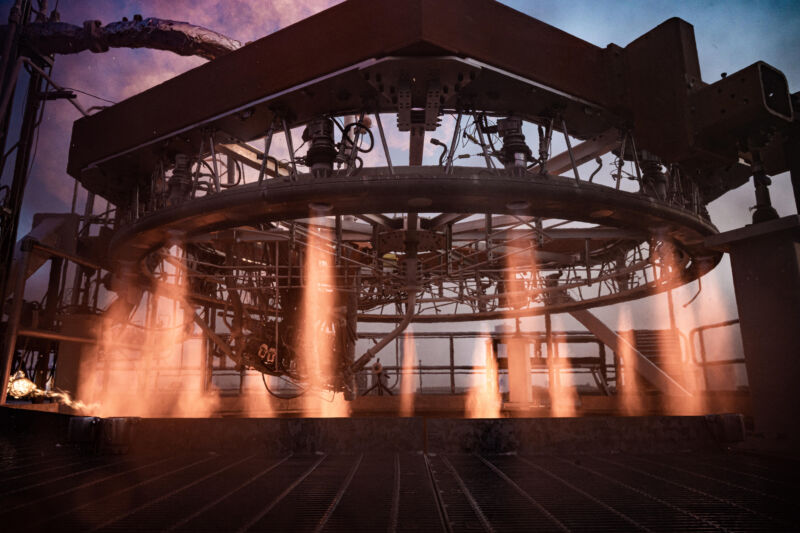Stoke Space aims to build rapidly reusable rocket with a completely novel design

Andy Lapsa went to the best aerospace engineering schools. He then worked very hard to help advance the development of some of the most advanced rocket engines in the world at Blue Origin. But in 2019, after a decade in the industry, he felt like the spaceflight future he was striving toward—rapidly reusable rockets—had not gotten much closer.
“It is the inevitable end state,” he said of low-cost rockets that can launch, land, and fly again the next day. “It’s gonna happen. It’s just a matter of who does it and when they do it.”
His vision for the future is not unique. It happens to be shared by two of the richest people in the world, Elon Musk and Jeff Bezos. Lapsa worked for one of them, first helping Bezos develop the powerful BE-4 engine and then as director of Blue Origin’s BE-3 program.
“I love Jeff’s vision for space,” Lapsa said in an interview with Ars. “I worked closely with him for a while on different projects, and I’m basically 100 percent on board with the vision. Beyond that, I think I would just say that I will let their history of execution speak for itself, and I thought we could move faster.”
This is a polite way of saying that more than two decades after Bezos founded Blue Origin, the company has yet to reach orbit. So three years ago, Lapsa, who is in his late 30s, and Tom Feldman, another rocket scientist there who had just turned 30, began to look around for a place to make a difference faster. They were animated not so much by a midlife crisis but by a desire to bring forward the era of low-cost, regular access to space and the future that might unlock for humanity.
Looking around
The pair of propulsion engineers looked around the US industry, which consisted of dozens of rocket companies. One of their friends, a former Blue Origin engineer named Tim Ellis, co-founded a Los Angeles-based company called Relativity Space in 2016. They looked closely at Relativity, but at the time, the company had not fully committed to the Terran-R rocket, a fully reusable, medium-lift rocket. Lapsa and Feldman also weren’t as bullish on additive manufacturing or pushing the limits on 3D-printing an entire rocket.
“I think the additive manufacturing of a full rocket is novel, but you want to choose the tools for production that make sense, and you want to let the best answer win,” Lapsa said. “And I think their approach was a little bit too single-minded.”

Finally, they considered SpaceX. Lapsa said he and Feldman were looking for three key ingredients in a company: rapid, reusable rockets; the right engineering team; and a history of “habitual execution.” SpaceX pretty much had it all, as the company’s primary focus was on the revolutionary, reusable Starship rocket. It possessed arguably the largest and most talented team of rocket engineers in the world, and no one flew more often or more dazzlingly.
And yet it wasn’t for them.
“They unquestionably have an amazing history of execution, of awe-inspiring stuff that has absolutely transformed our industry,” Lapsa said. “But I do think there’s room for a different style of company. We talk a lot with people who come out of SpaceX after three, five, 10, or 15 years, and they’re shells of their old selves. They’re burned out.”
So at the end of 2019, Lapsa and Feldman decided to found their own company, Stoke Space. Neither had experience raising money or running a business. They had no plan and no specific design for their rocket in mind. Rather, they had a strong conviction that the future they wanted wasn’t happening—but it was there for the taking.
“We took a leap of faith and jumped off a cliff,” Lapsa said.
https://arstechnica.com/?p=1887326